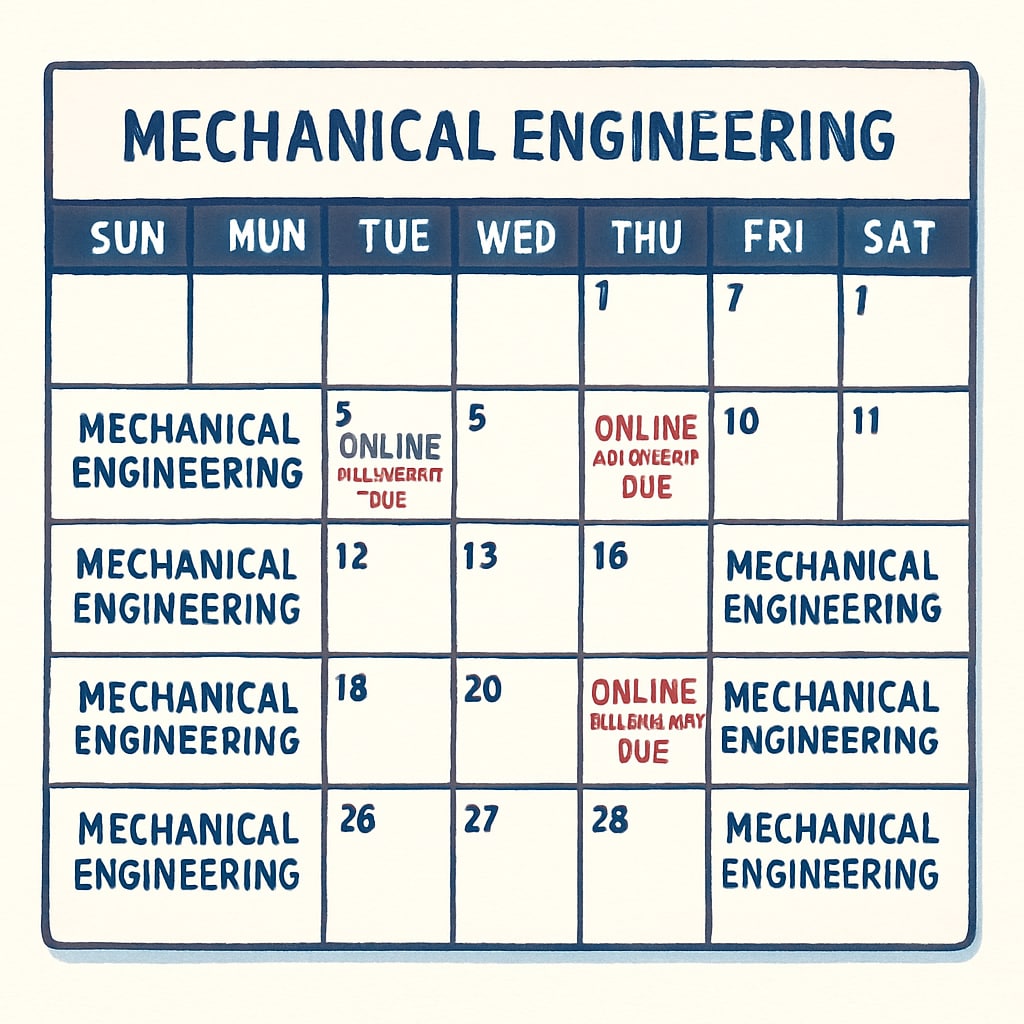Pursuing a mechanical engineering degree is already a challenging endeavor. Adding a second degree, especially through an online program, can seem daunting but offers immense value for career planning and personal growth. For students considering this path, effective time management and thoughtful academic planning are essential to ensure success.
Why Pursue a Second Degree Alongside Mechanical Engineering?
Many mechanical engineering students aspire to broaden their horizons and enhance their career prospects by pursuing a second degree. Fields like business, physics, computer science, and economics complement engineering by providing additional technical knowledge, analytical skills, and strategic thinking. For example:
- Business: Equips engineers with management and entrepreneurship skills, opening doors to leadership roles.
- Physics: Deepens understanding of fundamental principles, benefiting research and advanced engineering applications.
- Computer Science: Strengthens expertise in programming and data analysis, crucial for automation and AI-driven technologies.
- Economics: Offers insights into financial analysis and market behavior, useful for project management and industry analysis.

Balancing Academic Workload and Time Management
One of the greatest challenges of pursuing a dual degree is managing the additional workload. Here are practical strategies for maintaining balance:
- Plan Ahead: Create a detailed schedule for classes, assignments, and exams to avoid last-minute stress.
- Leverage Online Programs: Many universities offer flexible online degrees, allowing students to learn at their own pace.
- Prioritize Tasks: Focus on high-impact activities that align with your career goals.
- Seek Support: Connect with academic advisors and peers to discuss challenges and share solutions.
For example, opting for an online computer science program can allow mechanical engineering students to explore coding and software development without needing to attend in-person classes, saving both time and effort.

Career Planning: The Long-Term Benefits of a Dual Degree
A dual degree can significantly enhance your career prospects. Employers often value candidates who demonstrate interdisciplinary expertise and the ability to adapt to various roles. In addition, dual degrees can help students unlock unique opportunities, such as:
- Research Roles: Combining physics and mechanical engineering may lead to advanced research positions in materials science or aerospace engineering.
- Tech Innovations: A computer science degree paired with mechanical engineering can open pathways to robotics and automation roles.
- Business Leadership: A business degree can fast-track an engineer’s journey into executive positions or entrepreneurial ventures.
As a result, investing time and effort into earning a second degree can pay off in the form of broader career options and enhanced professional standing.
Final Thoughts: Is a Dual Degree Worth It?
While the pursuit of a second degree alongside mechanical engineering presents challenges, the potential rewards make it a worthwhile endeavor. By choosing a complementary field, leveraging online programs, and practicing effective time management, students can achieve both academic success and career advancement. Ultimately, the decision should align with your long-term aspirations and personal interests.
For further insights, explore authoritative resources like Mechanical Engineering on Wikipedia and Physics on Britannica.
Readability guidance: Use short paragraphs, lists, and overviews to simplify complex ideas. Incorporate transitions such as “for example,” “in addition,” and “as a result” to maintain flow. Focus on actionable advice and avoid excessive jargon.


